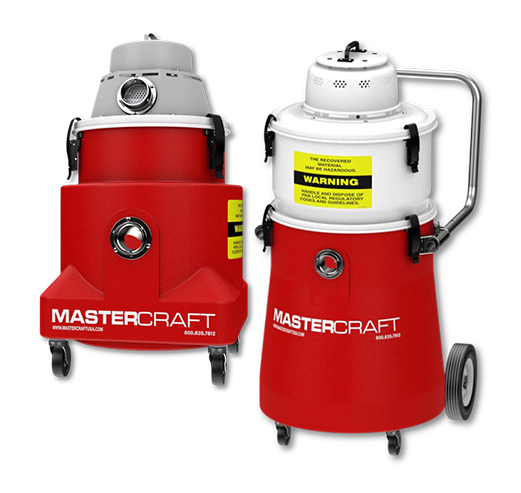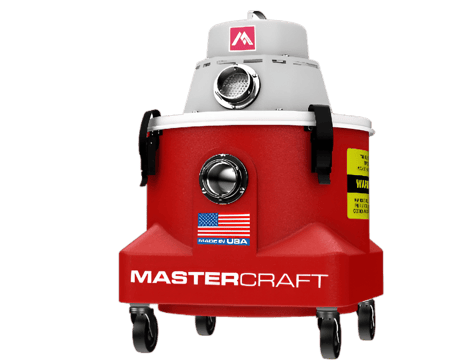In the quest for a spotless home, high-quality vacuums are indispensable. They not only ensure clean floors but also contribute to overall health by improving indoor air quality. When it comes to efficient cleaning, HEPA vacuums stand out as a game-changer.
But what exactly can they do, and what are their limitations? Let's explore everything you need to know about HEPA vacuums.
Understanding HEPA Vacuums
HEPA, or High-Efficiency Particulate Air, is a type of filter that captures at least 99.97% of particles as small as 0.3 microns. These filters are composed of a mat of randomly arranged fibers designed to trap tiny particles through a combination of diffusion, interception, and impaction.
The benefits of HEPA vacuums over standard ones are profound. While regular vacuums may recirculate dust and allergens back into the air, HEPA vacuums trap these contaminants, including dust particles. This feature makes them ideal for improving air quality, especially for those with allergies or asthma.
What HEPA Vacuums Can Do
HEPA vacuums can do a lot, so let’s dive into the details.
Trap Allergens More Effectively than Regular Vacuums
Dust mites, pet dander, and pollen are common allergens found in homes. While regular vacuums may pick up larger particles, they often fail to capture smaller allergens. HEPA vacuums come with a special filtration system that ensures even the tiniest of particles don't escape back into the air.
Improve Indoor Air Quality
Poor indoor air quality can lead to respiratory problems, allergies, and other health issues (that can also decrease productivity! See what we mean here). By trapping dust and allergens, HEPA vacuums significantly improve indoor air quality. This is especially beneficial for those with sensitive respiratory systems or weakened immune systems.
Reduce Exposure to Harmful Chemicals
HEPA filters also capture harmful chemicals such as lead and asbestos, which can be found in older homes. By reducing exposure to these substances, HEPA vacuums contribute to a healthier living environment.

Remove Mold Spores
Mold spores can cause a variety of health issues, including allergic reactions and respiratory problems. HEPA vacuums are effective at removing mold spores from surfaces, making them an essential tool for preventing mold growth in the home.
Contribute to Better Air During Renovations
Renovations can cause a significant amount of dust and debris to circulate in the air. HEPA vacuums are crucial during these times as they capture and trap the particles, preventing them from settling and potentially causing health issues.
Filter out Bacteria and Viruses
HEPA filters have been proven to capture bacteria and viruses, including the flu virus. This makes HEPA vacuums especially useful during cold and flu season, as they can help reduce the spread of these illnesses.
Reduce the Risk of Developing Allergies and Asthma
By effectively trapping allergens, HEPA vacuums can help in preventing the development of allergies and asthma. This is particularly important for young children, as early exposure to allergens can increase the risk of developing these conditions.
What HEPA Vacuums Can't Do
While HEPA vacuums are highly efficient at capturing small particles, there are a few things they can’t do.
Remove Odors
HEPA filters are not designed to remove odors from the air. Some models may come with an activated carbon filter for this purpose, but it's not a guaranteed solution.
Instead...
Try using natural odor-eliminating methods like baking soda, vinegar, and essential oils.
Kill Germs
While HEPA filters can capture bacteria and viruses, they cannot kill them. Regular cleaning with disinfectants is still necessary to eliminate germs.
Instead...
Use disinfectant wipes or sprays after vacuuming surfaces if you want to sanitize them.
Clean Large Debris
Due to their design, HEPA filters are not suitable for picking up large debris such as food crumbs or small toys. It's important to use a regular vacuum or broom and dustpan for these types of messes.
Instead...
Try using a broom and dustpan for larger messes, and save the HEPA vacuum for finer particles.
Completely Eliminate Allergens
While HEPA filters can capture most allergens, they may not be able to trap all of them. Regular cleaning and maintenance are still necessary to keep allergen levels low in the home.
Instead...
Regularly dust and vacuum surfaces, wash linens in hot water, and keep pets groomed to help reduce allergen levels in the home.

How to Get the Most Out of Your HEPA Vacuum
To fully reap the benefits of your HEPA vacuum, here are a few tips:
- Check and replace the filter regularly: A clogged or dirty filter will decrease the efficiency of your vacuum. Follow the manufacturer’s recommendations for replacing the filter.
- Use the right attachments: Most HEPA vacuums come with specialized attachments for different surfaces and purposes. Make sure to use them accordingly for optimal cleaning results. For instance, a dust brush is particularly useful in maintaining cleanliness by efficiently removing dust from surfaces.
- Vacuum regularly: To maintain good indoor air quality, it’s important to vacuum at least once a week or more often if you have pets or allergies. This will prevent allergens from accumulating and reduce the workload on your HEPA vacuum.
- Combine with other cleaning methods: While HEPA vacuums are highly effective, they work best when used in combination with other cleaning methods like dusting and mopping.
Maintenance and Care for Your HEPA Vacuum
To ensure your HEPA vacuum continues to perform at its best, it’s important to properly maintain and care for it. Here are some tips:
- Empty the dustbin regularly: As with any vacuum, it’s important to empty the dustbin after each use. This prevents a build-up of debris and ensures maximum efficiency.
- Clean or replace the filter as needed: Pay attention to the manufacturer’s recommendations for cleaning or replacing the filter. A dirty or clogged filter can decrease suction power and reduce the effectiveness of your vacuum. Regular maintenance can extend the life of the HEPA filter, ensuring it continues to provide optimal filtration.
- Check for blockages: If you notice a decrease in suction power, check for any blockages in the vacuum tubes or attachments. Clearing these blockages will help your vacuum function at its best.
- Wipe down the exterior: Regularly wipe down the outside of your HEPA vacuum with a damp cloth to remove any dust or debris that may have accumulated.
- Store properly: When not in use, store your HEPA vacuum in a cool, dry place to prevent damage and maintain its longevity.
By following these simple maintenance tips, you can ensure that your HEPA vacuum continues to provide efficient cleaning and improve indoor air quality for years to come.
Choosing the Right HEPA Vacuum for Your Needs
When considering purchasing a HEPA vacuum, there are a few things to keep in mind:
- Type of filter: Not all filters labeled as "HEPA" are true HEPA filters. Make sure to look for models that reach the standards of organizations such as the Asthma and Allergy Foundation of America (AAFA). This means proper terminology and functionality.
- Vacuum type: HEPA filters can be found in upright, canister, and handheld vacuums. Consider which type will best suit your needs and cleaning habits.
- Additional features: Some HEPA vacuums may come with added features such as adjustable suction power or different cleaning modes. Consider if these features are important to you before making a purchase.
- Budget: HEPA vacuums may come at a higher price point than regular vacuums, so make sure to set a budget and stick to it.
There are many HEPA vacuums on the market, but Mastercraft stands out. Known for our durable design and powerful cleaning capabilities, our HEPA vacuums are favored by professional cleaners and businesses. With models varying in size and functionality, there's a Mastercraft HEPA vacuum for every need.

FAQs
Do all HEPA filters have the same efficiency?
No, not all HEPA filters are created equal. The efficiency of a HEPA filter is measured by its ability to trap particles as small as 0.3 microns. Look for models, such as Mastercraft, with a high-efficiency rating (e.g., H13 or H14) for optimal performance.
How often should I replace the filter in my HEPA vacuum?
It depends on the manufacturer's recommendations, but typically, HEPA filters should be replaced every 6-12 months. However, if you have pets or allergies, you may need to replace the filter more frequently.
Can I use a regular vacuum bag in my HEPA vacuum?
No, regular vacuum bags are not designed to work with HEPA filters and can decrease the efficiency of your vacuum. Make sure to use the appropriate bags specified by the manufacturer.
Conclusion
All in all, HEPA vacuums offer numerous benefits for both residential and commercial settings. By effectively trapping small particles like dust, allergens, and harmful chemicals, they contribute to better indoor air quality and reduce health risks. While there are some things that HEPA vacuums can't do, they are still a valuable tool in maintaining a clean and healthy environment.
So whether you have allergies, pets, or simply want to improve your indoor air quality, a HEPA vacuum is an excellent choice for keeping your home or workplace clean and healthy.
Ready to elevate your cleaning game? Explore the range of Mastercraft HEPA vacuums and discover the difference for yourself. Your path to a cleaner, healthier space begins today.
0 comments